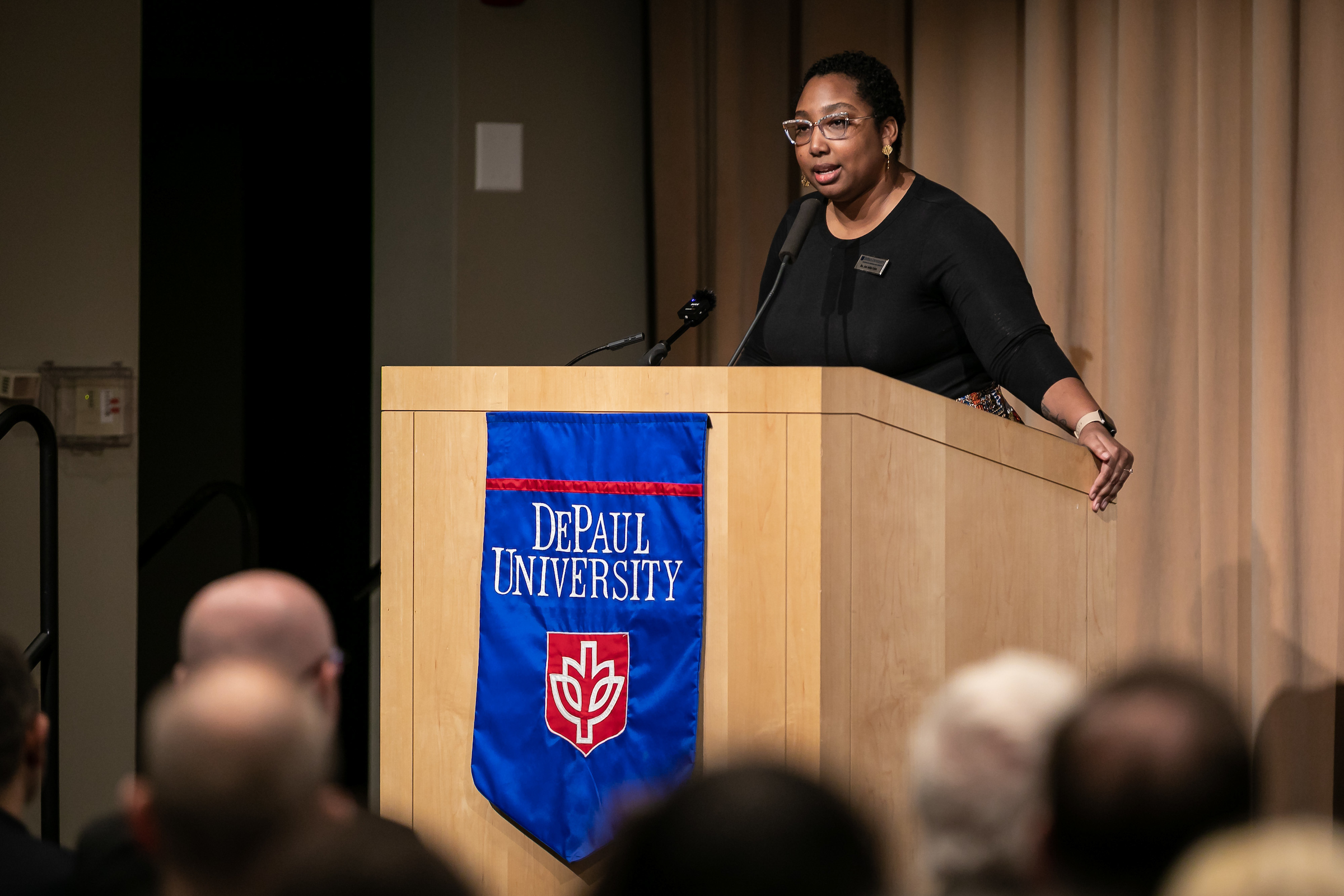
Minister Jené A. Colvin leads the ceremony on DePaul’s Lincoln Park Campus. (Photos by Jeff Carrion/DePaul University)
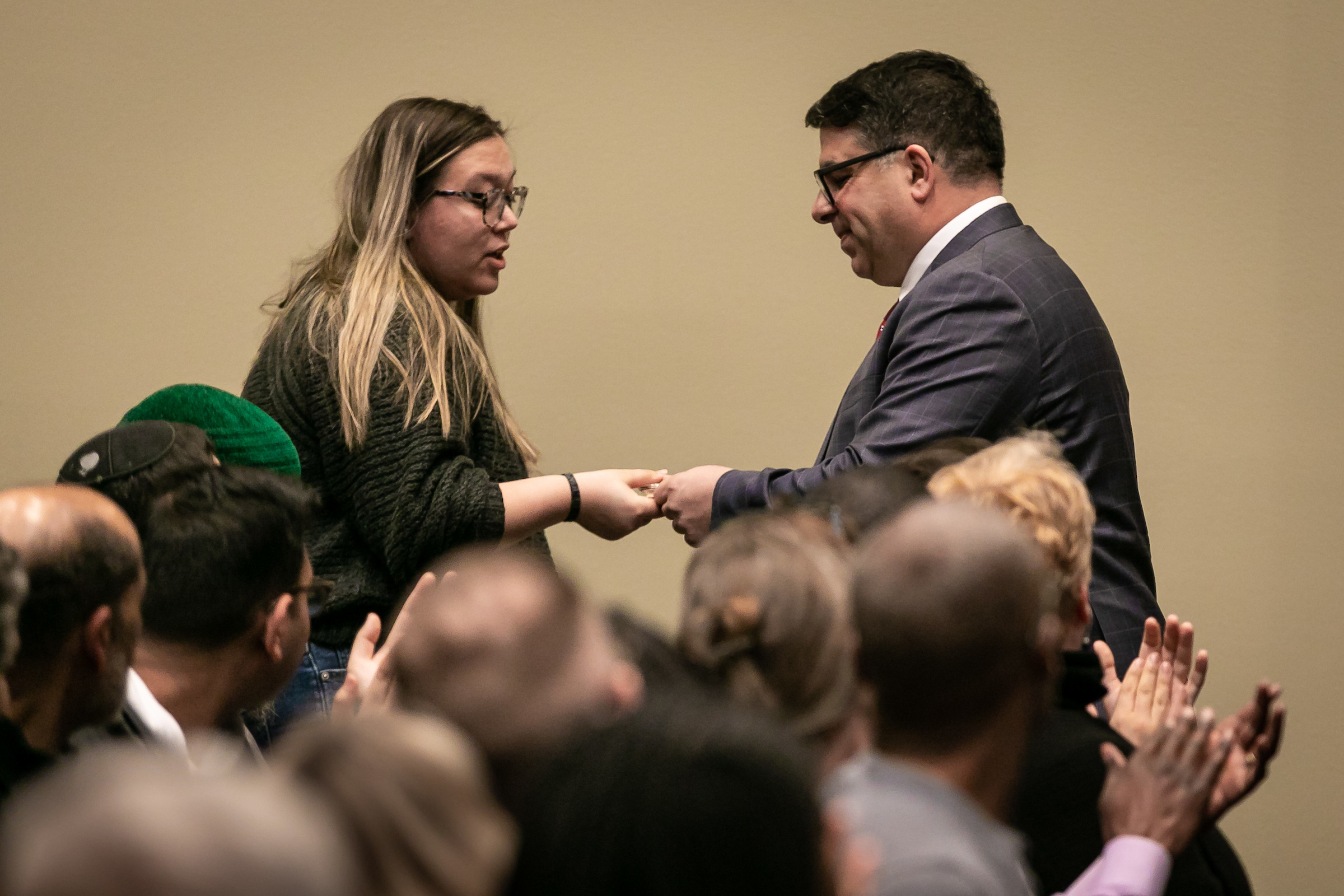
DePaul alumna and journalist Cam Rodriguez receives a Shared Coin from DePaul President Robert L. Manuel.
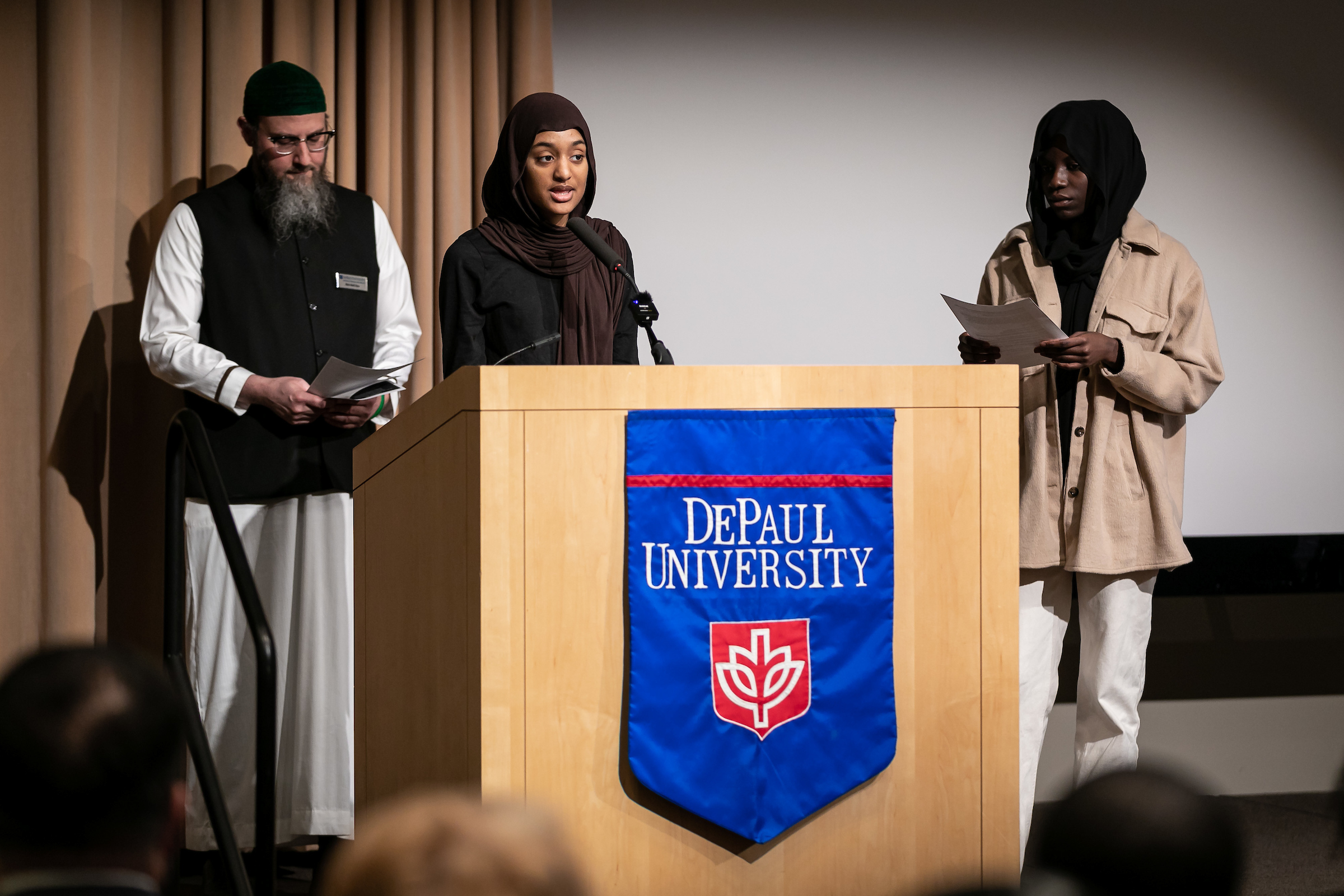
Abdul Malik-Ryan joins students Amy Gueye and Iman Williams in offering a Muslim Prayer.
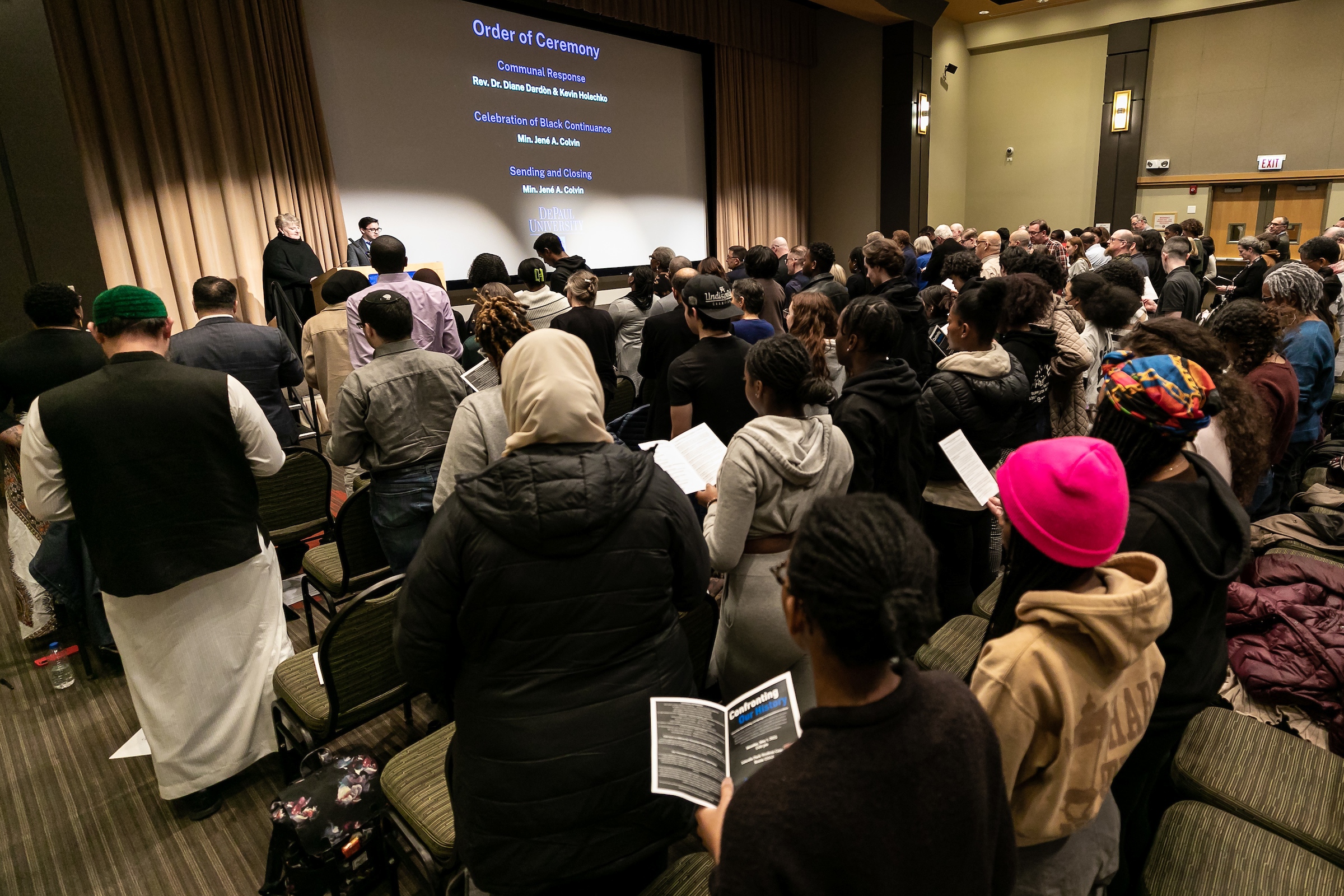
Students, faculty and staff participate in a communal response and commitment to atonement.
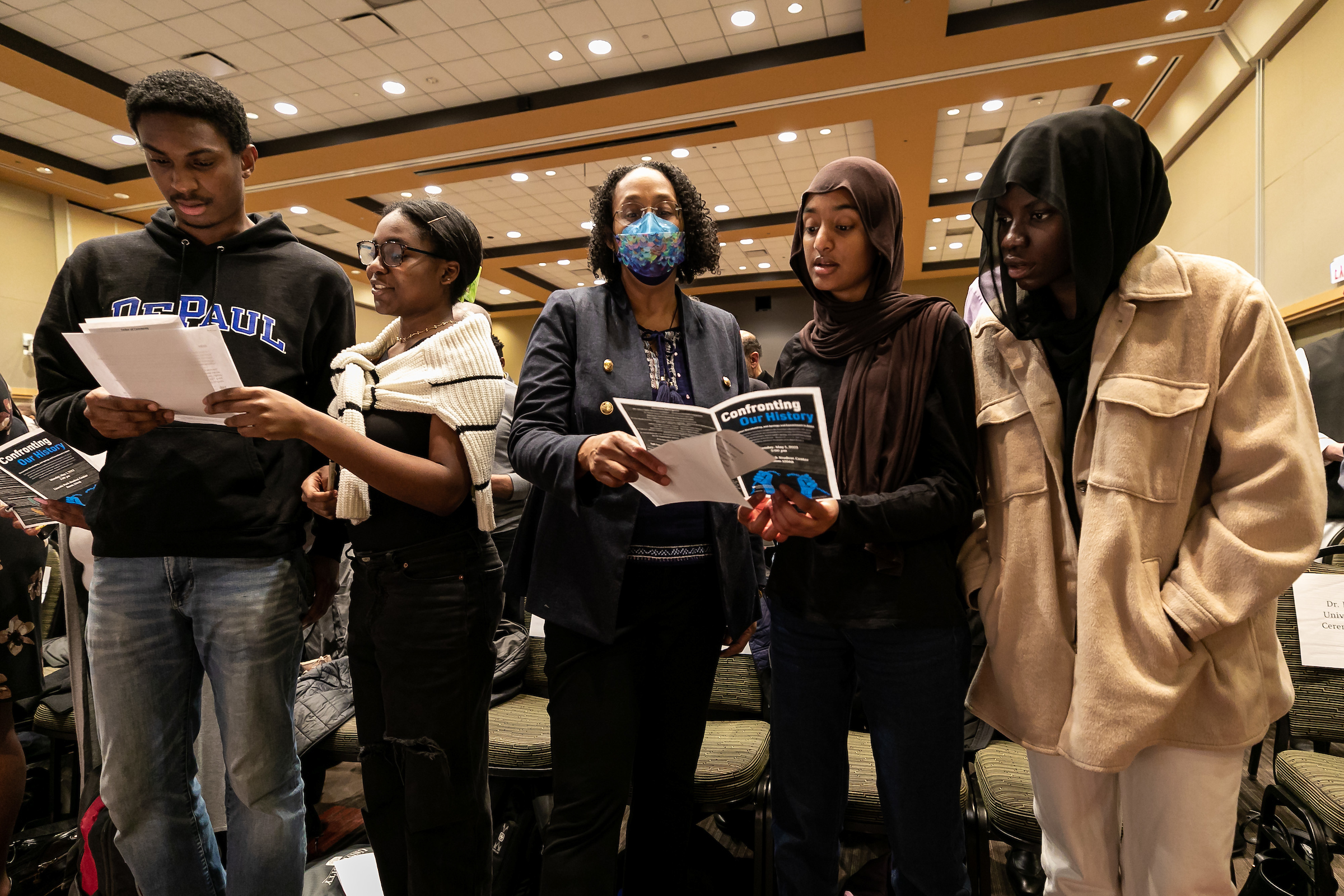
Jaylen Grigsby, Jaslynn Hodges, Julie Moody-Freeman, Amy Gueye and Iman Williams join in the communal response.
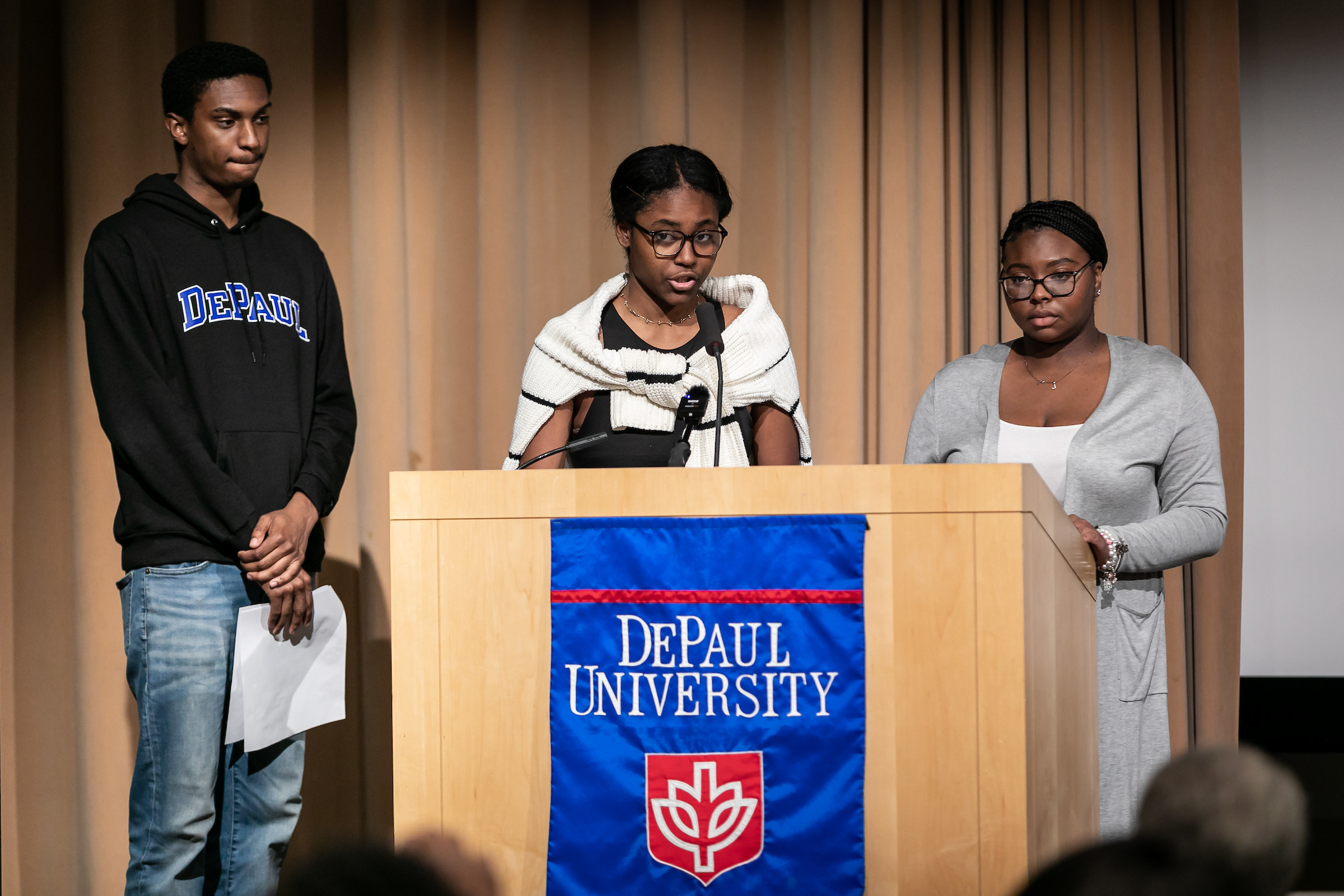
Students Jaylen Grigsby, Jaslynn Hodges and Vick-Ariel Privert deliver an Acknowledgement of Disruption.
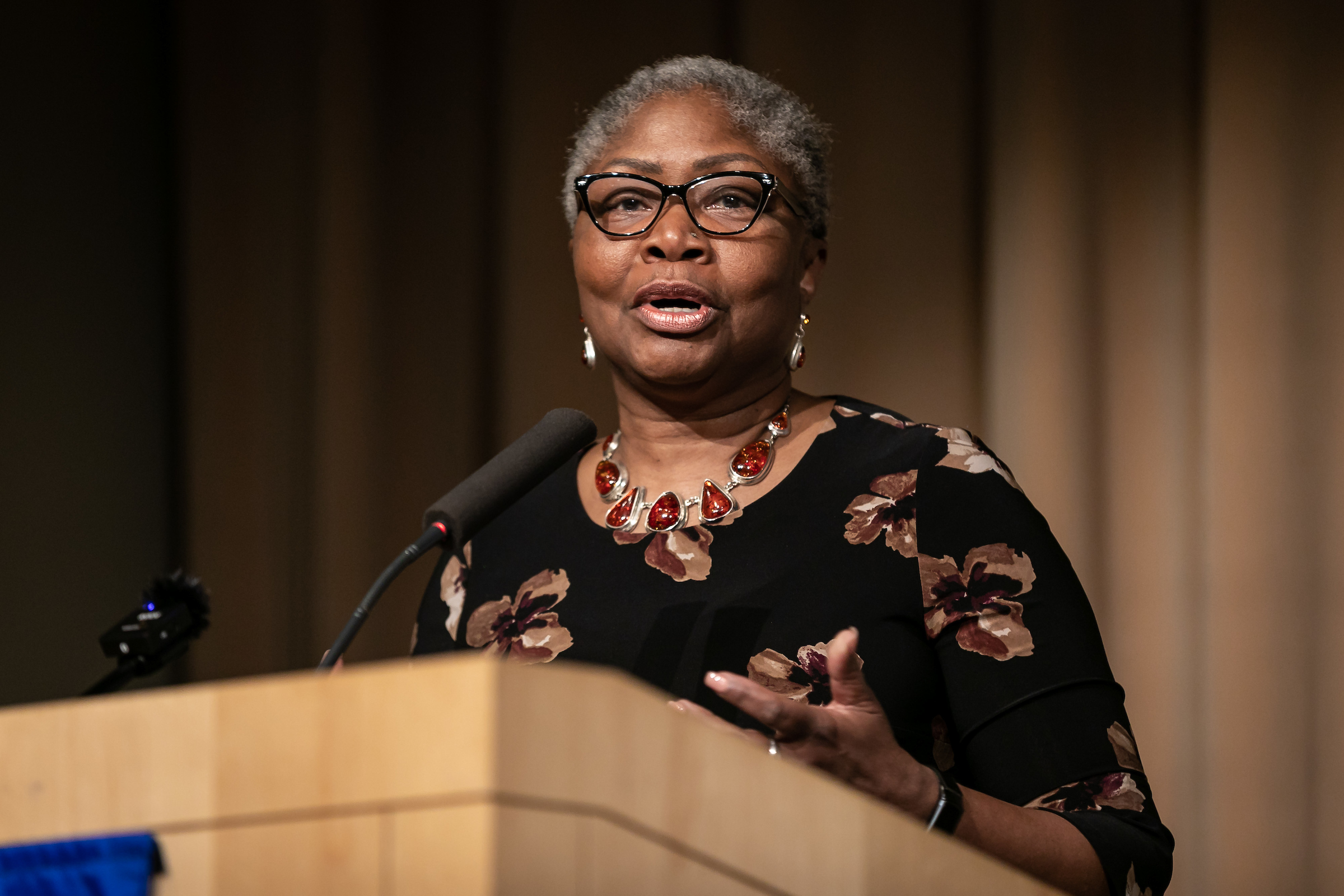
Professor Valerie Johnson reflects on the importance of apology and atonement.
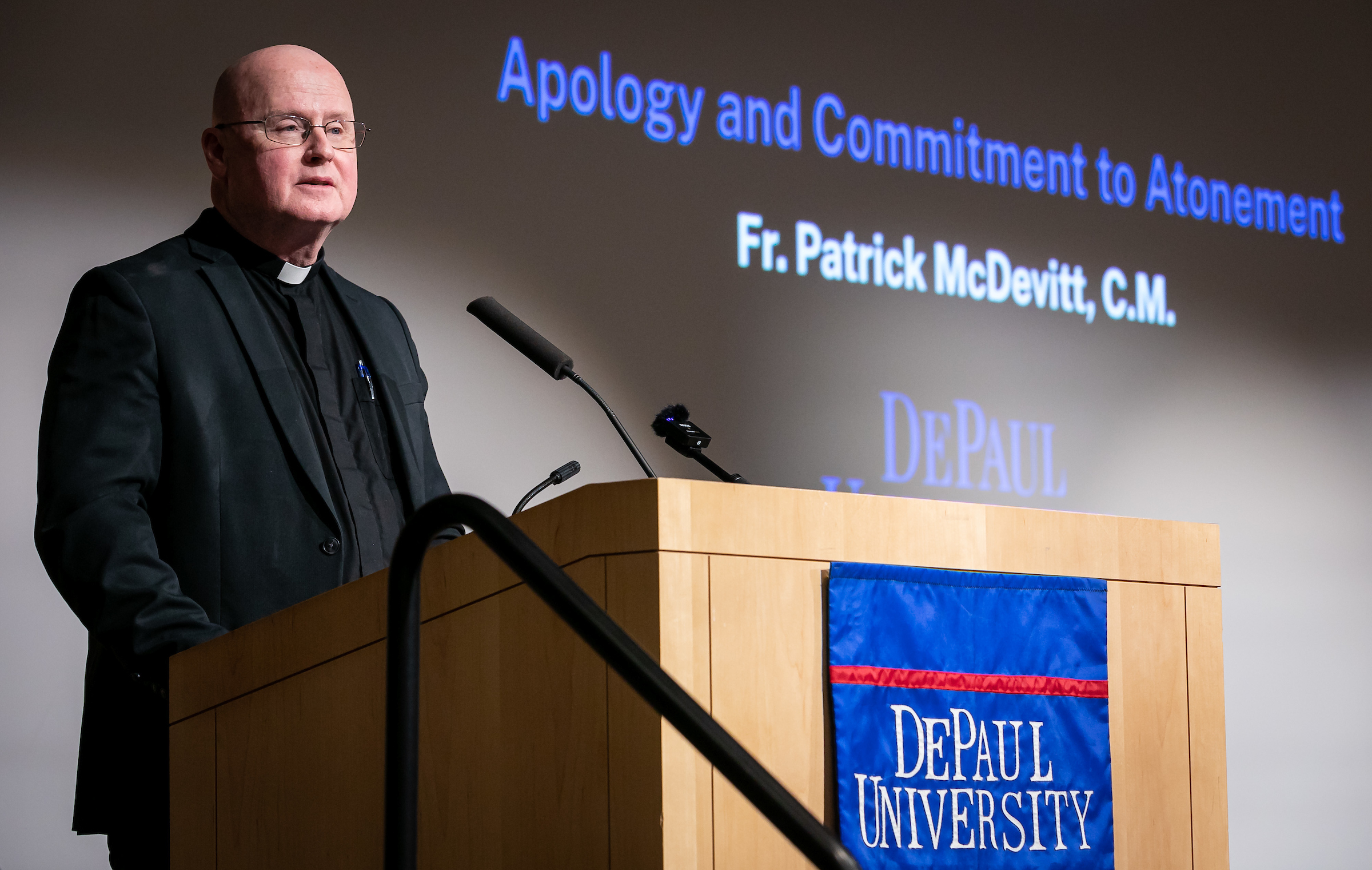
Fr. Patrick McDevitt, C.M., apologizes for the Vincentians’ slaveholding and commits to practicing “true solidarity.”
DePaul’s Task Force to Address the Vincentians’ Relationship with Slavery presented a ceremony for the university community on Monday, May 1. The interfaith program acknowledged and apologized for the enslavement of Black people by Vincentians and honored the peoples of the Black Diaspora.
Minister Jené A. Colvin led the event and was joined by faculty, staff and students who offered prayer and reflection.
“Reconciliation cannot happen without truth. Healing cannot happen without restorative reparations. Liberation cannot happen without addressing the root causes of what keeps us bound in the first place,” Colvin said.
The task force
formed in 2021 in response to the calls from the DePaul community to confront the history of slaveholding among Vincentians in the 19th century, discovered in part through University Archives. Earlier this year, DePaul President Robert L. Manuel
announced a series of actions to acknowledge this history and to further work “to comprehensively eradicate racism and bias from our community.”
“Today, I want to express my deepest appreciation to the members of the Task Force to Address the Vincentians’ Relationship with Slavery for their work, their dedication and their insistence that we hear and recognize what we see in the archives,” Manuel said.
Manuel also recognized DePaul alumna Cam Rodriguez with the Shared Coin for her investigative journalism on these topics. Rodriguez spent two years researching Vincentian slaveholding as well as acts of racism and bias that persisted on DePaul’s campus well into the 20th century. The results of her work are published online by the DePaul student publication
14 East Magazine, as well as in Rodriguez’s
personal account of conducting the research.
DePaul students Jaslynn Hodges, Vick-Ariel Privert and Jaylen Grigsby addressed those gathered. “Non-white people must reckon with un-comfortability and lean into social justice conversations. But we as Black people must remember that it is not our sole job to educate others on the injustice as they have caused us,” Privert said. “We must support uplift and care for each other to ensure that our history and greatness does not die with our ancestors that gave their lives fighting for the opportunity to tell their stories.”
Valerie Johnson, interim associate provost for diversity, equity and inclusion, also discussed ways to acknowledge painful history and take meaningful action. She urged the Vincentians and DePaul community to “work alongside African American people and people of other oppressed identities and seek to do its part in in rectifying the past.”
A central moment of the event was led by Fr. Patrick McDevitt, C.M., provincial superior of the Congregation of the Mission’s Western Province, who gave a public apology and commitment to atone for the order’s slaveholding.
“The tradition of faith and the Vincentian mission has, for time immemorial, held that every human person is made in the image and likeness of God and is absolutely loved by God,” McDevitt said. “Therefore, given who we are as Vincentians and what we profess to be in our faith and in our mission, it is unconscionable that Vincentians participated in slaveholding.”
“On behalf of the Vincentian priests and brothers, I say to you, and I say to the whole world, that we deeply regret, apologize and humbly ask forgiveness for our role in slaveholding and in any form of racism we have ever committed,” McDevitt said.
The event closed with a communal response and commitment to atonement, written by Colvin. Together the community resolved: “We are committed to practicing true solidarity to create lasting change. Black peoples are the experts on their own liberation. We will not rest until that liberation is realized.”
Looking ahead, the university has planned a May 18 renaming ceremony in honor of Aspasia LeCompte for Richardson Library, room 300, and Belden-Racine Hall.
Learn more and RSVP online.